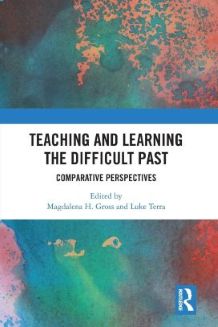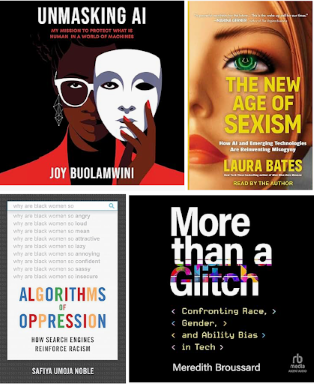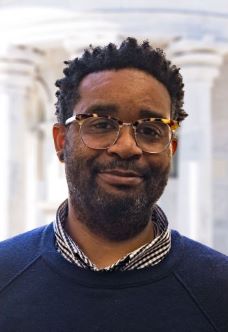Learning to unpack the rhetoric of “divisive” concepts.

My dad’s favorite professor in college was an entomologist who studied fruit-fly wings. He’d read up on fruit flies, observed them, hypothesized about their wings, tested what he hypothesized, maybe tested the null, came up with some data, analyzed it, and shared it with other bug scientists. At least for a time, if you needed to know anything about fruit-fly wings, that guy was your guy.
My dad taught seventh-grade science and thought stuff like this was cool. Me? Not so much. But I do love the anecdote. I often use it to make a point to my academic-writing students: Academics focus on very precise areas of research. We research empirically, publish our findings, and — in this way — contribute (bit by bit) to the general body of knowledge.
My area of research has that fruit-fly vibe to it — that remote precision that could make people outside the field be like, What? or Whatever. It is located at the nexus of public policy, social studies and English/language-arts curricula, rhetoric, critical reading, and undergraduate writing pedagogy. I study:
- The laws designed to influence what students know and how they think.
- The rhetoric that enables politicians to gain public support for education laws that are unethical and racist.
- The degree to which these laws actually impact what teachers teach and students learn.
- The manner in which professors can adapt what we do in our undergraduate classrooms to remediate the prejudices and uncritical habits of mind that might have formed in our students when they were in grade school.
It doesn’t sound like science, but it’s as empirical as science is. (That’s important in this era when “experts” are regarded suspiciously and empiricism is subverted by emotion, group identity, capital, and political aspiration, especially from the far-right. Empiricism is very different from the far-right process, which seems to be, “Decide what works for us and our aspirations; construct a believable narrative; publicly promote it as true.”)
Humanities fields, like my field of rhetoric, can sound like narratives and opinions. But empiricism drives humanities research, too. For me, for example, valuing empirical methods means that I don’t say much of anything until I’ve read broadly on my topic, researched the living daylights out of it, gathered data, and then analyzed it like a scientist. For instance, behind the claims that I’m about to make on the effects of anti-CRT (Critical Race Theory) and “divisive concept” policy, there lies data I collected from literally thousands of student samples, dozens of formal interviews with educators, and an enormous amount of background reading in related fields.
Here’s the claim: Right-wing politicians are “rhetricking” the public into believing that critical multiculturalism is bad for white people. They don’t always succeed in controlling educators and shaping the minds of learners. However, when they do manage to realign classrooms to reflect their own prejudices, they restrict students’ ability to think well and to function in a pluralistic democracy. However, college professors can — and should — adapt critical pedagogies that help students claim more sophisticated habits of mind and replace the prejudices of willing learners with better reasoned, more inclusive ideas.
Let’s take a look at one of the many examples from current events in which the Trump administration works against all that critical educators value: Trump recently “directed Vice President JD Vance to eliminate ‘improper, divisive, or anti-American’ ideology from programs at the Smithsonian Institution,” and he is making similar moves elsewhere. The main ideological debate at the center of his executive order and other such efforts is whether racism figures into American history and the telling of it.
The rhetoric around this overstep is interesting to me. What’s “true” and “inclusive” to me is “divisive” and “un-American” to them. But surely their (Eurocentric) way of teaching history is just as divisive, much less true, and way more damaging. There is a large body of research in a number of disciplines making clear just how detrimental white-supremacist education is to minoritized and mainstream students alike. There is also pedagogy on how social-studies educators in particular can teach critically and multiculturally without doing the damage that the Heritage Foundation, right-wing politicians, and book-banners allege.
Why is it important? By restricting dialogue about history to the one view acceptable to them, right-wing policymakers preempt and prevent critical thought. Critical thinking, as described by one of the red-state teachers I interviewed, “requires students to consider multiple perspectives before forming their own.” It’s the opposite of indoctrination and so, in its very special, Orwellian way, has been labeled “indoctrination” by the current administration. (Sigh.)
If we lived in a political climate in which empiricism mattered, though, works like Gloria Ladson-Billings’ writing on CRT would be foundational to the public discourse on it. That’s because she’s the educational researcher who adapted CRT from legal-studies into social-studies pedagogy. She wrote extensively on the invisibility of non-Europeans in social-studies curricula. She advocated for inclusivity and emphasized the need for teachers and students to read critically. Her ideas spread and became influential for many good reasons.
If we lived in a political climate in which empiricism figured at all, the emotions of resistant white learners would still matter, as they do to right-wing politicians and educators alike. But instead of developing rhetoric to exaggerate and fabricate the horror of the white experience of critically multicultural learning, politicians would consult empirical works on such things, like Magdalena H. Gross and Luke Terra’s 2019 Teaching and Learning the Difficult Past.
Those Stanford researchers collected case studies by educators teaching a broad range of what some people call “hard histories.” Chapters discuss how to help students cope with hard histories, how to teach learners from various sides of historical conflicts in one classroom, how to handle local tragedies that reflect poorly on the students’ community members, and so on. It’s important stuff. None of it is universally applicable, I’m sure. Each bit, however, is adaptable and able to be scientifically studied for even broader adaptation.
That’s because inquiry — in the academy, at least — keeps on going. Meaning, I doubt that my dad’s teacher’s research from the 1950s was the final word on fruit-fly wings, and I don’t think anyone should be duped by the Trump administration’s string of logical fallacies and inflammatory half-truths. If you’re on the fence about their initiatives, I encourage you to question their rhetoric, read some of the many oppositions to their policies, and reason your way to an opinion that is more scientific and truly your own.
Sarah Trembath is an Eagles fan from the suburbs of Philadelphia who currently lives in Baltimore with her family. She holds a master’s degree in African American literature and a doctorate in Education Policy and Leadership. She is also a writer on faculty at American University. She reviews books for the Independent, has written extensively for other publications, and, in 2019, was the recipient of the American Studies Association’s Gloria Anzaldúa Award for independent scholars for her social-justice writing and teaching. Her collection of essays is currently in press at Lazuli Literary Group.

